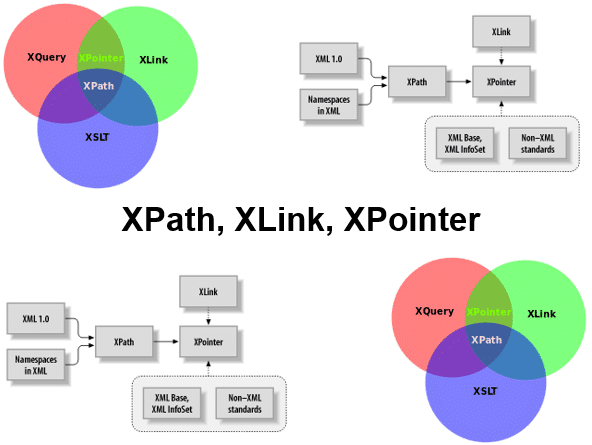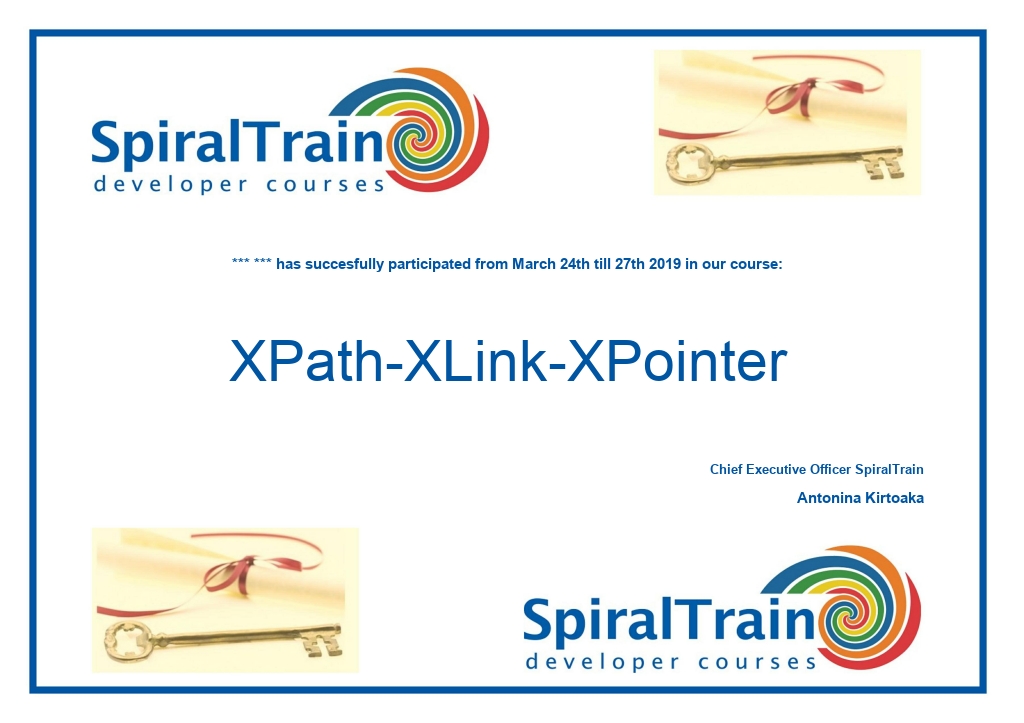-
Learning by doing
-
Trainers with practical experience
-
Classroom training
-
Detailed course material
-
Clear content description
-
Tailormade content possible
-
Training that proceeds
-
Small groups
In the course XPath-XLink-XPointer the participants learn to apply the XPath, XLink and XPointer specifications to localizing and linking fragments in XML documents.
The course starts with an overview of the XML document structure and components of XML documents. This focusses on the role of elements, attributes and text. The difference between well-formed and valid documents is also discussed.
Next XPath is addressed with which nodes in an XML document that meet certain conditions can be selected. The syntax of XPath expressions with predicates, node selection and functions is discussed.
And also the various search axes that XPath has are treated.
XPath uses the data types from XML Schema and these are explained as well.
Then attention is paid to XLink with which XML fragments can be linked together. After discussing the limitations of HTML links, the Simple and Extended links in XLink are treated. Also Link Behavior and the Semantic and Traversal attributes of links are discussed.
Finally XPointer is on the course schedule with which the internals of XML documents can be addressed. The relationship to and the differences with XPath are explained.
The course XPath-XLink-XPointer is intended for anyone who wants to learn how to search XML with XPath and how to make XML connections with XLink and XPointer.
Basic knowledge of XML is required to participate in this course.
The theory is discussed on the basis of presentation slides. The theory is explained further through demos. The theory is interchanged with exercises. Course times are from 9.30am to 16.30pm.
After successful completion of the course participants receive an official certificate XPath-XLink-XPointer.

Module 1 : XML Overview |
Module 2 : XPath |
Module 3 : XLink |
|
XML Document Structure XML Prolog XML Elements XML Attributes Well Formed Documents Valid Documents Processing Instructions Entity References CDATA Sections Character References Comments Namespaces |
XPath Expressions XPath Node Types XPath Context XPath Location Steps XPath Axes Location Path Syntax Predicates XPath Operators XPath Functions Node Tests in XPath XPath Data Types XML Schema Data Types |
Limitations of HTML Links XLink Linking Model Simple Links Extended Links Links and Resources Defining Links Link Behavior on Show Link Behavior on Actuate Semantic Attributes role, arcrole and title Traversal Attributes label, from and to |
Module 4 : XPointer |
||
|
XPointer Syntax XPointer versus XPath XPointer scheme() Point Location Definition Point Location Type Point Location Range Document Order string-range range-to Range Related Functions XPointer Framework |
